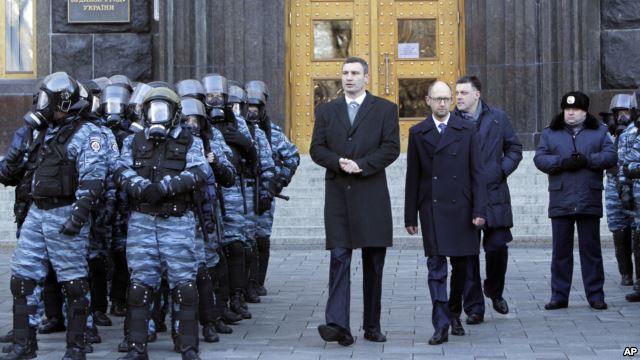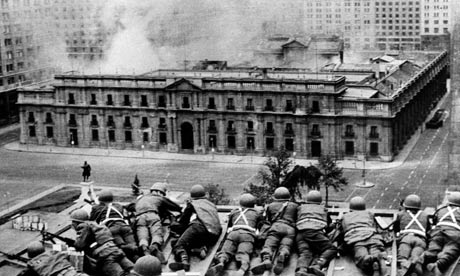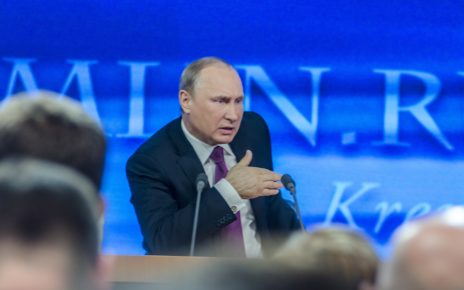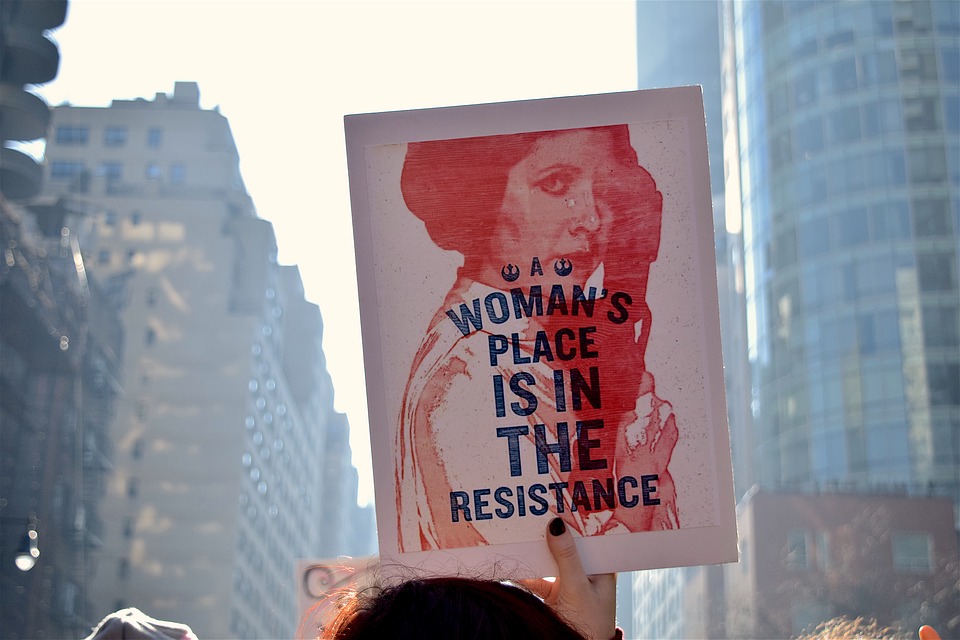Vitali Klitschko aka Dr Ironfist
Vitali Klitschko is the leader of the Ukrainian Democratic Alliance for Reform party; the acronym translates to “Punch/Strike.” Klitschko was born in the Soviet Union in what is now Kyrgyzstan. He is a titanic figure in heavyweight boxing, a former World Boxing Organization and World Boxing Council champion with a PHD in Sports Science. He left boxing entirely to focus on politics in 2005. He ran for mayor twice unsuccessfully before creating the Punch Party which stands in the middle of the political spectrum. Since then he has had much more success; he was elected to parliament in 2012 and his party won 40 out of 120 seats in the Verkhovna Rada (Ukraine’s parliament). He has announced he will run for President in 2015. Klitschko is dedicated to reforming Ukrainian politics; he refused an offer from President Viktor Yanukovych to take the position of Deputy Prime Minister for Humanitarian Affairs, saying he will not accept an offer to become part of Yanukovych’s corrupt government.
Klitschko, despite his short-lived political experience, would be a positive figure for change in Ukraine if successful in 2015. His party represents moderate Ukrainian nationalists and liberals who agree with the European Integration Project but don’t hold any extreme positions towards Russians or the Russian language. His policy stance is anti-corruption and pro-transparency; he favors judicial reform and wants to improve the Ukrainian economy. To achieve improvement, he favors an Association Agreement with the European Union. Despite his pro-Western position, he has taken no interest in the divisive Russian language debates that cause polarization between Western and Eastern Ukrainians. He says he entered politics because the people need him and the people say “He’s earned his fortune with his hands, so he doesn’t need to steal from the people.” He is a popular figure within the Ukrainian protest movement but Russian analysts believe his German passport will be a hindrance to his electoral success in the future.
Arseniy Yatsenyuk
Yatsenyuk is the leader of the All Ukrainian Union “Fatherland” party. He is by far the most experienced of the opposition figures; having entered politics in 2001, he has had many important posts. He has served as Vice-President of the National Bank, Governor of Odessa Oblast (an Oblast is a sub-national region, like a province with less autonomy), Chairman of the Verkhovna Rada, headed talks on Ukrainian World Trade Organisation (WTO) membership, served as Foreign Minister and heads the Ukraine-European Commission. He ran for President in 2010 and also declined an offer to be part of Yanukovych’s government. He was re-elected to parliament in 2012 where his party won 62 out of 120 seats. Prior to entering politics, he worked for the Aval Bank in Kiev; in the run up to 2015 elections, he will need to shake his banker image in order to convince the most militant wing of the protest movement that he is tough enough a politician to represent them.
Yatsenyuk would make an excellent leader for Western Ukraine, but very little in his policy stance would be palatable to the Eastern population of the country. He opposes the use of Russian as a second language despite the fact that, according to a 2008 study, 26% of Ukrainians consider Russian their mother tongue and another 28.7% of Ukrainians consider Russian their mother tongue alongside Ukrainian. He wants EU membership for the Ukraine because he believes it will increase the standard of living for its people. Despite his pro-Western position, he is liberal only in his economic policies; he opposes same-sex marriage, an issue that could become contentious with the EU in the future. He views the Customs Union of Belarus, Kazakhstan and Russia as renewal of the USSR in a new form and opposes it vehemently. This is another issue that will put him at odds with ethnic Russians and Russian-speaking Ukrainians in the Eastern part of the country who work in heavy industry and rely on the Russian market for the goods they produce.
Yulia Tymoshenko
Yulia Tymoshenko is the former leader of the All Ukrainian Union “Fatherland” Party. She is currently being held in a hospital under police surveillance having been found guilty on charges of abuse of power and embezzlement. She was brought to trial in June of 2011 over a contract with Russian gas giant Gazprom, which the court found to be detrimental to the country’s economy allegedly costing Ukraine $440 million. Tymoshenko insists she is innocent and her supporters charge that the court findings were biased. The European Union has made her release a condition of signing an Accession Agreement with Ukraine and various human rights organizations have taken up her cause. Yet it is concerning that this is not the only criminal charge brought against her. Tymoshenko was also indicted for abuse of power for allegedly using $425 million of Kyoto protocol money received by Ukraine for setting carbon emission quotas while she held the position of Prime Minister to pay for pensions and for buying over priced vehicles to use as ambulances.
Given the prevalence of corruption in Ukrainian government, it is not unlikely that Tymoshenko is guilty. But it is clear that her prosecution was a selective use of justice, by President Viktor Yanukovych. She ranked 3rd in 2005’s Forbes List of the World’s Most Powerful Women and co-led Ukraine’s Orange Revolution. She poses a serious threat to the president as a future candidate for his job, so the motivation behind her persecution is transparent. However, her record of corruption is still concerning and in light of her current health problems; she is not the most likely future President of the opposition leaders.
Oleg Tyagnybok
Oleg Tyagnybok is the most dangerous Ukrainian opposition leader. He represents the Ukrainian far-right, and Pravda has called him a Neo-Nazi. He leads the All Ukrainian Union “Svoboda” (Freedom) party- formerly known as the Social-National Party of Ukraine (SNPU), modeled after the far right parties of Austria and Greece, which Tyagnybok joined in 1991. SNPU used a swastika-like logo, opposed Russian interference in Ukrainian politics and saw itself as the last hope of the white race. It changed its name to Svoboda in 2004 in an attempt to moderate its far right associations but Tyagnybok made it clear in a public speech only 5 months after the change that Svoboda still held the same views as its predecessor making statements such as:
“The enemy came and took their [UPA’s] Ukraine. But they [UPA fighters] were not afraid; likewise we must not be afraid. They took their automatic guns on their necks and went into the woods. They got them ready and fought against the Moskali [Russians], Germans, Zhydy [Jews], and other scum, who wanted to take away our Ukrainian state! And therefore our task—for every one of you: the young, the old, the grey-headed and the youthful—we must defend our native land!… These young men and you, the grey-headed, are the very combination, which the moskal’s’kozhydivs’ka [Moscow-Jewish] mafia ruling Ukraine fears most.”
The speech was made at the grave site of a UPA commander in the Yavoryna Mountains. The UPA stands for the Ukrainian Insurgent Army which fought against both Nazi and Soviet forces during World War Two and also murdered Poles, Jews, Russians and even Ukrainians who opposed them. The Public Prosecutor’s Office opened a case against Tyagnybok for inciting ethnic hatred, but he was acquitted in March 2005. He continued to engage in anti-Semitic activity signing the Letter of 100 petitioning former President Viktor Yushchenko, Chairman of the Verkhovna Rada and Head of the Supreme Court “to stop the criminal activity of the organized Jewry.”
As for Tyagnybok’s professional credentials, he was trained as a doctor and served on the Budget Committee of the Verkhovna Rada in the late 90s and early 00s. His Freedom Party won 50 seats in the Ternopil regional election of 2009. He was re-elected to parliament in 2012 where his party won 38 seats out of 120, making Svoboda the 4th largest party in Ukraine. His policy stance is firmly pro-Western, but unfortunately it is the most xenophobic aspects of Western politics which he identifies with. He is pro-NATO, anti-immigration, opposes Russian as a second language and wants to register the ethnicity of all Ukrainian citizens in their internal passports. Furthermore, he wants to establish Ukraine as a nuclear power in order to achieve energy independence from Russia. When asked how to pay for this development given Ukraine’s dire economic situation, he suggested reducing social welfare spending!




